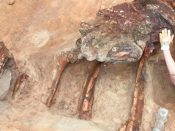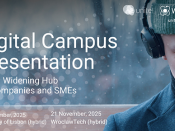Por Londa Schiebinger (Standford University).
How can we harness the creative power of sex, gender, and intersectional analysis for discovery and innovation? As a historian of science, I founded Gendered Innovations in 2009. Today it is a global enterprise. This talk will discuss what gendered innovations is, how it works, its methods and case studies.
Gendered Innovations was developed through interdisciplinary collaborations involving over 200 experts from across the United States, Europe, Canada, and Asia. Major funders include the European Commission, the U.S. National Science Foundation, and Stanford University. Apart from the peer-reviewed website, recent publications include: AI can be Sexist and Racist - It’s Time to Make it Fair Nature, 559.7714 (2018), 324-326; Sex and Gender Analysis Improves Science and Engineering Nature, 575.7781 (2019), 137-146; Gendered Innovations 2: How Inclusive Analysis Contributes to Research and Innovation (Luxembourg: Publications Office of the European Union, 2020), and Ensuring that Biomedical AI Benefits Diverse Populations eBioMedicine, 103358 (2021).
Londa Schiebinger is the John L. Hinds Professor of History of Science in the History Department at Stanford University and Director of the EU/US Gendered Innovations in Science, Health & Medicine, Engineering, and Environment Project. Professor Schiebinger is a leading international authority on gender and science. Over the past thirty years, Schiebinger's work has been devoted to teasing apart three analytically distinct but interlocking pieces of the gender and science puzzle: the history of women's participation in science; gender in the structure of scientific institutions; and the gendering of human knowledge. In 2018-2020, Schiebinger directed the European Commission Expert Group to produce Gendered Innovations 2: How Inclusive Analysis Contributes to Research and Innovation, launched November 2020.
Transmissão via Zoom.





















